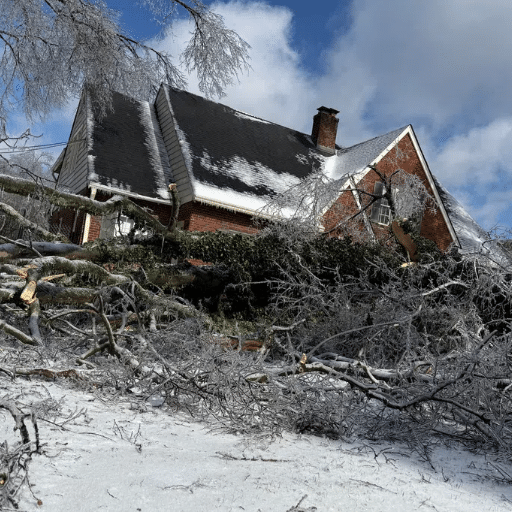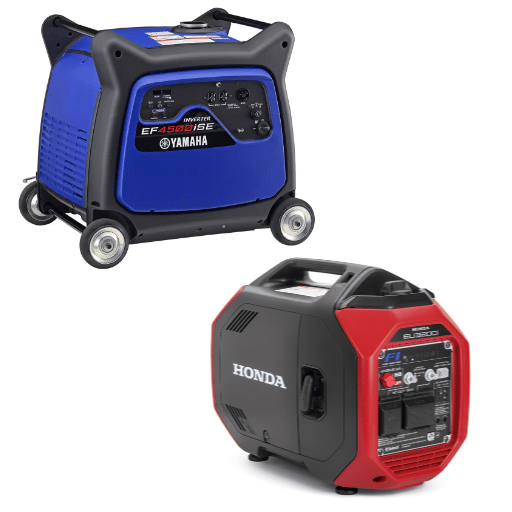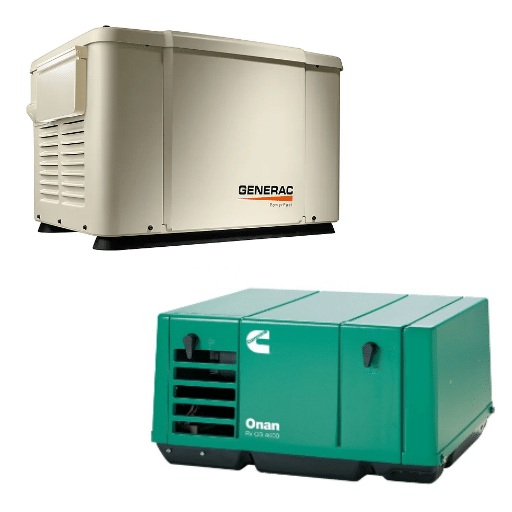In most cases, frequent power outages are disruptive to daily life, and those times are when you need the electricity the most. Uninterrupted electricity is necessary to safeguard homes, stay connected with others, and just keep the lights on. This provokes the key question for all homeowners and businesses: Does one need to invest in a generator? Considering the costs, benefits, and practicalities, this article will address the real worth of owning a generator in blackout-prone areas. By the end of this, one will be able to think clearly about whether or not a generator is a good investment for their needs.
Understanding Generators and Power Outages
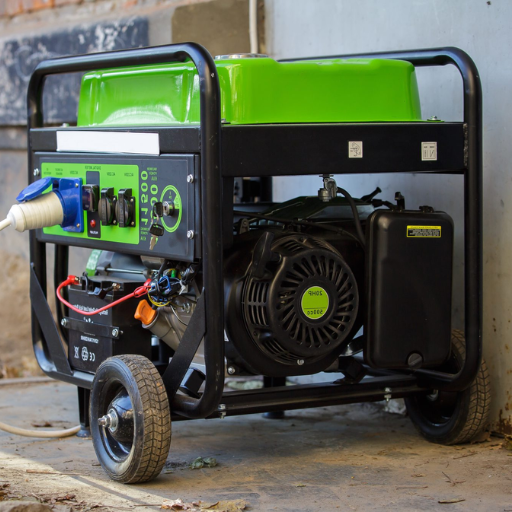
Generators provide backup power to essential equipment during power outages. Generators take fuel from gasoline, diesel, or natural gas, convert it into electricity, and feed it to selected circuits or, in some cases, the entire premises. Thusly, in places where blackouts occur frequently and for prolonged periods, a generator would keep food supplies from going bad and maintain heating or cooling systems. When necessary, the generator also promotes critical electronics, such as medical equipment and communication devices. Nevertheless, the decision to buy a generator comes down to the necessity of keeping certain areas, like the home or business, powered through outages, how often power outages occur in the area, and how long these outages tend to last.
What is a Home Generator?
Damage-friendly generator systems serve as power backups for homes, supplying electricity to the house during power outages and ensuring that nature’s loads and integrated systems remain operational without trouble.
Types of Generators for Home Use
|
Type |
Power Output |
Fuel Type |
Cost Range |
Key Features |
Best Use Case |
|---|---|---|---|---|---|
|
Home Standby |
5,000-20,000 watts |
Natural gas, propane |
$2,000-$7,000+ |
Automatic start, powers the entire home |
Long-term outages, whole-home power |
|
Portable |
3,000-8,500 watts |
Gasoline, propane |
$400-$3,000 |
Portable, manual start, lower cost |
Short-term outages, outdoor use |
|
Inverter |
1,500-7,600 watts |
Gasoline, propane |
$400-$4,000 |
Quiet, fuel-efficient, stable power |
Electronics, small appliances |
|
Portable Power Station |
1,200-1,500 watts |
Battery, solar |
$400-$6,000 |
No emissions, indoor use, quiet |
Apartments, camping, small devices |
How Frequent Power Outages Affect Your Home
Say you have so many power outages that they start to threaten the very existence of cabling. This includes a lifestyle with increasingly few enhancements for daily activities: cooking, completing a project, or creating a comfortable environment. Furthermore, these frequent outages might sometimes render life-threatening conditions and unbearable distress for any household dependent on electricity for heating, cooling, or medical appliances.
Power outages also temporarily paralyze home security, thereby putting one’s property into the hands of many temptations. According to the U.S. Energy Information Administration (EIA), the average American suffered more than eight hours of power outages in 2021, doubling what it was in 2013. Lately, runaway power outages have been precipitated by events like extreme weather, degrading infrastructure, and gluttonous energy demand.
Frequent outages jeopardize appliances and electronics. The voltage fluctuations caused by sudden power outages threaten the delicate innards of your instruments, thereby demanding major repairs or even replacement costs, for instance, as per the National Renewable Energy Laboratory (NREL), home electrical systems’ damage can run into hundreds, maybe even thousands of dollars over time.
These outages cause a great deal of inconvenience and put the money in a patient’s refrigerator or freezer at significant risk, to the tune of a USDA estimate of food loss from an outage of above four hours standing at well over $150 for most families. Installation of a home generator can reduce these risks by providing an alternate, reliable source of power in situations of disruption.
The Value of Backup Power
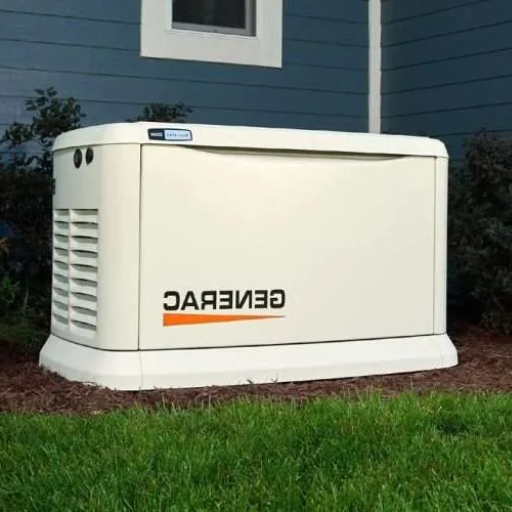
Backup power helps your home continue performing essential functions indoors and enables you to attend to any disruption during power interruptions. A reliable backup system, such as a home generator, will immediately provide electricity to essential appliances such as refrigerators, heaters, or even medical devices to prevent food from spoiling, maintain comfort, and uphold health. Another thing that backup power does is keep your lights and other communication devices on, as a safety measure. Investing in a reliable backup solution will perhaps create an atmosphere of calmness, plus it will lessen the tangible and financial impacts usually occasioned by the unexpected loss of power.
Benefits of Installing a Home Backup Generator
|
Benefit |
Description |
|---|---|
|
Uninterrupted Power Supply |
Automatically restores power during outages. |
|
Protects Essential Devices |
Keeps medical and safety devices operational. |
|
Prevents Food Spoilage |
Maintains refrigerator and freezer functionality. |
|
Ensures Home Comfort |
Powers HVAC systems for heating/cooling. |
|
Avoids Manual Operation |
Automatically activates without user input. |
|
Prevents Power Surge Damage |
Protects electronics from sudden surges. |
|
Supports Security Systems |
Keeps alarms and cameras running during outages. |
|
Reduces Grid Dependence |
Provides reliable power during grid failures. |
|
Improves Air Quality |
Powers purifiers and dehumidifiers. |
|
Increases Home Value |
Adds resale value and buyer appeal. |
Cost vs. Long-term Value: Is a Generator Worth It?
|
Aspect |
Details |
|---|---|
|
Initial Cost |
$2,000-$7,000 for standby generators. |
|
Installation Cost |
$1,000-$5,000 depending on complexity. |
|
Maintenance Cost |
$300-$1,000 annually for upkeep. |
|
Lifespan |
15-20 years with proper maintenance. |
|
Energy Independence |
Reduces reliance on grid power. |
|
Home Value Increase |
Adds 3-5% to property resale value. |
|
Protection Benefits |
Prevents power surges and frozen pipes. |
|
Convenience |
Automatic activation during outages. |
|
Government Incentives |
Rebates are available for solar-powered generators. |
|
Long-term Savings |
Avoids costly appliance and system repairs. |
Protect Your Home from Power Outages
In my view, a generator is certainly worth an investment. Once a power failure strikes, knowing that at least the bare necessities of lighting, refrigeration, and security are maintained is a comfort unto itself. That alone far outweighs the costs, which, when patient, would consider the other protections against disturbances, not to mention the inestimable increase in value to your home. So, it becomes clear that it is an effective way to ensure reliability and comfort irrespective of the condition.
Choosing the Right Generator
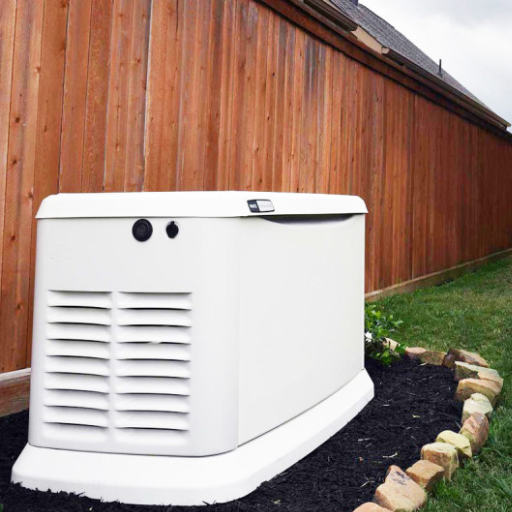
Selecting the right generator depends on your specific energy needs. Check to find the number of watts needed to run appliances and systems that are essential during an outage. A portable generator should be sufficient for basic needs such as lights, refrigerators, and charging electronic devices; whereas a standby generator would work best for powering the entire home, including heating and cooling.
Remember the fuel type, such as gas, propane, and diesel. Propane and natural gas are generally preferred for their long shelf life and cleaner emissions than other fuels. Also, ensure that it has an automatic transfer switch for smooth switching “ON” during power failure, and go for brands known for reliability and excellent customer reviews. If you do not know the installation or power capacity requirements, always check with a professional.
Factors to Consider When Selecting a Generator
Since becoming a generator user, a range of parameters should be considered to match the generator’s needs. Here are five main parameters for consideration:
- Power Output (Wattage Needs)
Check your power needs by calculating the watts required by appliances and devices. A refrigerator uses between 600 and 800 watts, while an air conditioning unit requires more than 3,000 watts to run its circuits. Find your generator according to your peak wattage needs to ensure smooth operations during disruptions.
- Fuel Type and Efficiency
Gasoline, propane, diesel, and solar-powered generators are some of the fuel types that one can find. While gasoline is a standard fuel, diesel generators are more fuel-efficient and durable. Propane is considered more environmentally friendly since it has the most extended shelf life and clean emissions. Consider the price and availability of fuel in your area before making a choice.
- Run Time and Tank Capacity
A generator’s fuel tank capacity generally determines how long it can run on a fill of fuel. Generators may store fuel in tanks so large that even at 50% load, they keep going for 12 hours or longer, which is a good thing to guarantee for clients. At all times, consider your usage rate so the generator can run long enough without you being required to refuel it frequently.
- Portability and Size
This depends on whether the generator will be used at home, somewhere in the wild, or on a jobsite; always check for the right size and portability. Smaller and portable ones are for camping or powering small appliances, while larger, stationary types are big enough to power an entire home or business.
- Noise Level
Noise levels make a big difference for homes and campsites. A noise level measured in decibels seizes the foreground. The noise levels of quieter inverter generators would, for example, be about 50-60 dB, which is on the same level as a few people talking. Always give consideration to noise output. From there, go for units that are within legal limits or fitted according to your wish of being fit.
Generator Installation Tips
- Choosing the Appropriate Location
For safety and efficiency purposes, a generator must be well situated. Generators must be set up outside, at least 5 feet from any window, door, or vent, to avoid carbon monoxide poisoning hazards. According to the CDC, more than 400 people die annually in the U.S. due to carbon monoxide poisoning, where, more often than not, improper use of generators has caused the situation. It also makes sense to place it on a dry and flat surface, ensuring the spotting area is shielded from harsh weather conditions such as heavy rain or snow.
- Install a Transfer Switch!
If you want to connect the generator to your house’s electrical system safely, you must use a transfer switch. This prevents backfeeding, which can endanger utility workers and damage electrical appliances. Backfeeding is a common cause of electrical accidents during power outages. Professional electricians strongly recommend the installation of a transfer switch to avoid any trouble with codes and standards.
- Proper Ventilation Is a Must
Generator exhaust gases can kill if not vented correctly. In portable models, the exhaust is positioned opposite any living cabin while ensuring at least a 3-foot-wide clear space for air to flow around the unit. The manufacturer’s instructions usually specify clearances and venting requirements for standby models. Past data clearly shows that adequate ventilation prevents overheating and carbon monoxide buildup.
- Grounding the Generator
Grounding the generator is an essential safety precaution that prevents electrical shock or fire hazards. Check your manual for instructions regarding grounding, as requirements may differ for various types and models. Per NFPA (National Fire Protection Association) recommendations, grounding ensures electrical safety compliance.
- Maintain and Test Regularly
Maintenance and testing are required for a generator to remain in working order. One survey pointed out that generator failures during emergencies typically result from infrequent testing and maintenance. Regularly check oil levels, air filters, and overall system performance. It is recommended to carry out at least one load test for about 15-20 minutes each month.
By following these practical installation tips and adhering to professional guidelines, you can enhance your generator’s safety, performance, and longevity.
Comparing Home Backup Generators and Solar Panels
|
Parameter |
Home Backup Generators |
Solar Panels with Batteries |
|---|---|---|
|
Initial Cost |
$2,000-$7,000 |
$9,000-$25,000 |
|
Operating Cost |
High (fuel-dependent) |
Low (sunlight is free) |
|
Environmental Impact |
High emissions |
Clean, renewable energy |
|
Power Capacity |
Unlimited with fuel |
Limited by battery storage |
|
Noise Level |
Loud |
Silent |
|
Maintenance |
Regular servicing required |
Minimal maintenance |
|
Reliability |
Works anytime with fuel |
Dependent on sunlight and battery charge |
|
Tax Incentives |
Not eligible |
Eligible for tax credits and rebates |
|
Lifespan |
10-15 years |
10-20 years (batteries) |
|
Best Use Case |
High energy demand, immediate power needs |
Sustainable, long-term energy independence |
Potential Drawbacks of Having a Generator

Although generators ensure backup power, there are some disadvantages worth considering. The first is that generators are expensive to buy and maintain, with recurring fuel and routine servicing costs. Second, these units are noisy during operation, especially if set up near or in neighborhoods. Fuel storage causes other safety concerns such as leaking fuel if not appropriately handled. Traditional generators release carbon dioxide into the atmosphere, thus contributing to air pollution and environmental deterioration. You should weigh these hindrances and your requirements when deciding whether a generator is the perfect solution for your home or business.
Maintenance and Upkeep of Backup Generators
| Maintenance Task | Details |
|---|---|
|
Read the Manual |
Follow model-specific maintenance guidelines. |
|
Run Periodically |
Test monthly for 30 minutes under load. |
|
Use Fresh Fuel |
Avoid stale fuel; use stabilizers if needed. |
|
Change Oil |
Every 6 months or 50 hours of use. |
|
Clean Air Filter |
Every 6 months or replace after 300 hours. |
|
Inspect Spark Plug |
Clean every 6 months; replace yearly. |
|
Check Battery |
Test charge monthly; clean corrosion. |
|
Clean Spark Arrestor |
Scrub every 100 hours or 6 months. |
|
Store Properly |
Drain fuel and cover for long-term storage. |
|
Keep Area Clear |
Remove debris for proper air intake/exhaust. |
Noise and Emissions Concerns
Noise and emission are two points afforded paramount importance when a backup generator comes up for consideration, especially in densely populated or environmentally-protected regions. Most generators use an internal combustion engine, which creates a lot of noise, usually in the range of 60-90 decibels (dB) at 23 feet, noise levels similar to that of a vacuum cleaner or a lawn mower, much to the nuisance of day-to-day activities in residential or quiet zones. Inverter generators or those with inbuilt noise reduction technologies are an answer to this problem, bringing noise levels down to below 55 dB.
Emission-wise, a conventional gas- or diesel-powered generator will disgorge greenhouse gases like carbon dioxide (CO2), carbon monoxide (CO), and nitrogen oxides (NOx). According to the United States Environmental Protection Agency (EPA), the small gasoline-powered engines applied in generators and tools emit more air pollutants per hour of operation than do newer passenger vehicles. For instance, a gasoline-powered generator running for one hour at a high load will emit the same amount of pollutants as the exhaust from a mid-size car that travels a distance of 100 miles. Moreover, these emissions make the air unhealthy and contribute to smog generation.
Improved ways, such as in EPA-certified and CARB-compliant models, drastically cut down emissions. Solar-powered or battery-based generators are the green alternatives because they are silent and curb direct emissions. By opting for cleaning solutions or simply by installing mufflers and sound-dampening enclosures, one can coexist peacefully with local noise ordinances and environmentalists while trimming his carbon footprint.
Cost Considerations for Long-term Use
- Fuel Prices
The kind of generator and its efficiency determine the type and amount of fuel used. Considering the usual generators running on gasoline and diesel, fuel prices normally fluctuate according to market situations. Supposing a diesel generator consumes 0.5 gallons per hour and the station charges $4 per gallon, then the generator owner pays $2 per hour of operation.
- Maintenance and Repairs
Scheduled maintenance for oil changes, filter replacements, and inspections of generators and their parts are included within operating costs. Generally, $150-$300 can be considered for annual maintenance, depending on the size of the generator and how frequently it is used. However, unplanned repairs can add to these charges, with some replacement parts costing several hundred dollars.
- Initial Outlay and Life Span
An expensive generator is one that will provide a longer working life for a reduced cost per hour of use. For example, a $3,000 generator that lasts for ten years would cost roughly $300 per year, not considering other expenses.
- Energy Efficiency and Upgrades
Such upgrades are generally more expensive upfront but eventually translate into higher energy savings and lower operating costs. Solar panels or any other further upgrades would decrease consultation costs in the future.
- Costs for Environmental Compliance
It may be necessary to spend some money on best mufflers, sound-dampening systems, or environmentally friendly generators to meet emission and noise limitations. However, this can be averted with fines and reduced operating expenses, optimizing efficiency in the long run.
By considering these factors, generator users can better negotiate and control the long-term costs, thereby achieving cost efficiency and value.
Making an Informed Purchase Decision
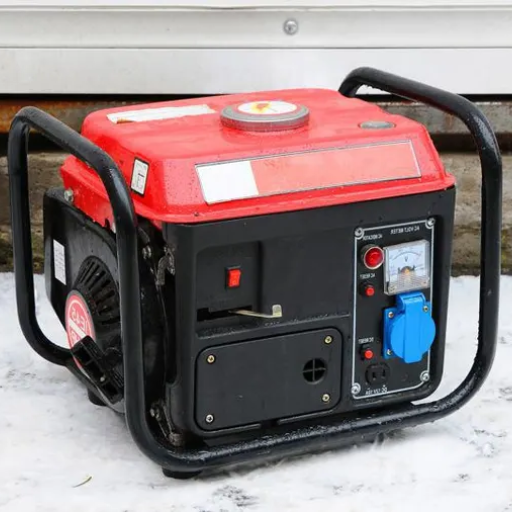
To make an informed purchase decision, generator buyers would do well to consider such factors as power requirements, fuel type, efficiency, and regulatory compliance. The first thing to be checked should be the power needed to ensure that the generator can take the maximum load required. Fuel type should be chosen depending on availability and budget considerations, whether diesel, petrol, or any renewable option. The most energy-efficient models should ideally be considered so that operational costs run low; also, the generator must have a longer run time on a single fill. Lastly, the generator should be compliant to lower the risk of being penalized for non-compliance with emissions and noise standards and to support sustainable environmental practices. A good generator that fits these requirements and can serve well for long periods is thus worth considering.
Assessing Your Power Needs
The power requirements will first be calculated by observing the wattage necessary to run all your essential devices, tools, or systems simultaneously. The user should list anything intended to be powered and note down their energy requirements, usually given on the manufacturers’ labels or manuals. These figures should then be summed up with a small allowance for extra or sudden use. This way, you are assured of selecting a generator that can comfortably manage your entire load without risking an overload, which would be very unreliable in terms of performance; hence, your desired generator will function uninterrupted and very well.
Researching Brands and Models
While buying a generator, one must consider numerous aspects like performance, reliability, customer opinions, and features in general. Below follows a list of manufacturers and brief reviews of their best models, according to present market data and analysis:
1. Honda Generators
Honda has long enjoyed a reputation for reliable, fuel-efficient generators. The brand is trusted for residential use and applications requiring professional skills.
- Best Model: Honda EU2200i
- Power Output: 2,200 Watts
- Noise Level: 48-57 dB (quiet operation)
- Fuel Efficiency: Runs up to 8.1 hours on a single tank at 25% load
- Highlights:
- Compact and lightweight (only 47 pounds)
- Eco-Throttle mode for enhancing fuel usage
- Clean power output for sensitive electronics
- Price Range: Around $1,200
2. Generac Generators
Generac is known for feature innovation and robust build, especially for home backup and industrial applications.
- Best Model: Generac GP8000E
- Power Output: 8,000 Running Watts, 10,000 Starting Watts
- Noise Level: Approx 70 dB
- Fuel Efficiency: Up to 11 hours at 50% load
- Key Features:
- Electric start for ease of use
- Steel fuel tank with a built-in gauge for durability
- Best for powering large appliances and tools
- Price: $1,050-$1,300
3. Champion Generators
Champion is a budget-friendly brand that provides power in all areas.
- Best Model: Champion 76533 Dual Fuel
- Power Output: 3,800 Running Watts, 4,750 Starting Watts
- Noise Level: 68 dB
- Fuel Efficiency: Up to 9 hours on gas/10.5 hours on propane
- Features:
- Dual fuel (gasoline and propane)
- Easy-to-use control panel
- Cold start for winter applications
- Price Range: Around $750
4. Yamaha Generators
Yamaha generators have earned a reputation for quality in manufacture and quiet operations. They are apt for camping and outdoorsy work.
- Best Model: Yamaha EF2000iSv2
- Power Output: 2,000 watts
- Noise Level: 51.5 dB
- Fuel Efficiency: 10.5 hours at 25% load
- Key Features:
- Simple smart throttle operation
- Compact and ultra-lightweight
- Price Range: Around $1,000
5. Westinghouse Generators
Westinghouse provides power-packed, feature-laden, and value-priced sets for home and portable use.
- Best Model: Westinghouse WGen7500DF
- Power Output: 7,500 Running Watts, 9,500 Starting Watts
- Noise Level: Approx. 72 D B
- Fuel Efficiency: Up to 16 hrs on a 6.6-gal fuel tank
- Key Features:
- Dual-fuel engine
- Electric start with remote key fob
- Transfer switch ready for backup power
- Price Range: $850-$1,100
Comparison Table
|
Brand |
Top Model |
Power Output |
Noise Level |
Fuel Efficiency |
Key Feature |
Price Range |
|---|---|---|---|---|---|---|
|
Honda |
Honda EU2200i |
2,200 watts |
48-57 dB |
Up to 8.1 hours |
Compact and Eco-Throttle |
~$1,200 |
|
Generac |
Generac GP8000E |
8,000 watts |
~70 dB |
Up to 11 hours |
Electric start |
$1,050-$1,300 |
|
Champion |
Champion 76533 Dual Fuel |
3,800 watts |
68 dB |
Up to 10.5 hours |
Dual fuel capability |
~$750 |
|
Yamaha |
Yamaha EF2000iSv2 |
2,000 watts |
51.5 dB |
Up to 10.5 hours |
Lightweight and smart throttle |
~$1,000 |
|
Westinghouse |
Westinghouse WGen7500DF |
7,500 watts |
~72 dB |
Up to 16 hours |
Dual fuel and remote start |
$850-$1,100 |
Tips for Choosing the Right Generator Model
- Establish Your Needs:
- For home backup, higher wattage and transfer switch readiness are of concern.
- For camping or tailgating, compact and quiet models are the priority.
- Consider the Fuel Aspect:
- A dual-fuel model would provide an option should a fuel shortage occur.
- Check the Reviews:
- Get customer views on reliability and performance.
- Factor Maintenance into Your Choice:
- Consider brands with excellent warranties and solid customer support.
Researching and comparing various models based on your needs will help you make the right decision about reliable, power-efficient solutions.
Finding Professional Installation Services
While searching for professional installation services, I mainly focused on recommendations and reviews to ensure that I selected a credible installer. I consulted local directories, compared various quotes, and checked for valid licenses and certifications. Also, I asked about warranties and after-installation support to guarantee long-term reliability. With this approach, I was able to find a trustworthy service that met my expectations.
References
-
JSTOR: “Preventing blackouts” – This source discusses generator operations and their role in preventing blackouts. Link to source
-
IEEE Xplore: “Power system blackouts-literature review” – A detailed review of power system blackouts, including generator-related insights. Link to source
-
Taylor & Francis: “Emergency and Backup Power Sources: Preparing for Blackouts and Brownouts” – A comprehensive book on backup power solutions, including generators. Link to source
Frequently Asked Questions (FAQ)
What is a standby generator, and how does it work during power outages?
A standby generator is a permanently installed power solution that automatically activates during power outages. It connects directly to your home’s electrical system and can provide emergency power to essential appliances like your refrigerator, freezer, and air conditioning. This ensures your home remains functional and comfortable even when the power goes out.
Should I consider a portable generator for my home during frequent blackouts?
A portable generator can be a practical choice for homeowners looking for a temporary power source during blackouts. These generators can run on gasoline or propane and can power essential devices such as lights, medical equipment, and small appliances. However, they require manual setup and may not provide the same level of convenience as a standby generator.
How can a generator provide peace of mind during severe weather events?
A generator ensures that you can maintain power to critical systems in your home, such as heating, cooling, and refrigeration, during severe weather. This peace of mind is especially valuable for families with medical equipment or other vital needs, as it helps protect against the risks associated with power outages.
What risks should I consider when using a generator, especially regarding carbon monoxide?
If a generator, particularly portable models, is not operated safely, there is a risk of carbon monoxide poisoning. It’s essential to follow the manufacturer’s guidelines and never run a generator indoors or in enclosed spaces. Installing a carbon monoxide detector can also help ensure safety while using backup systems.
Can a generator increase the value of my home?
Investing in a generator can potentially increase your home’s value, especially in areas prone to frequent power outages. Prospective buyers often appreciate the convenience and security of having a reliable power source during emergencies, making your property more appealing in the real estate market.
What type of fuel should I choose for my generator: natural gas or propane?
Both natural gas and propane offer reliable fuel options for generators. Natural gas is often preferred for standby generators, providing a continuous supply without refueling. On the other hand, propane can be stored in tanks and is suitable for portable generators. Your choice may depend on availability and your specific generator needs.
How does a generator protect essential appliances during a blackout?
A generator can protect essential appliances by providing a consistent power supply when the main electricity goes down. This is particularly important for refrigerators and freezers, which can spoil food during extended outages. A generator helps mitigate the effects of a power outage on your home’s power needs by ensuring power is available.
What should I consider when deciding if a generator is worth the investment?
When evaluating if a generator is worth the investment, consider factors such as the frequency of power outages in your area, the types of appliances you need to power, and your budget. Assessing your home’s power requirements and the potential risks associated with blackouts can help determine if investing in a generator is a wise choice for your family.
How can I ensure my generator is always ready for the next power outage?
To ensure your generator is always ready for the next power outage, regular maintenance is key. This includes checking fuel levels, testing the battery, and running the generator periodically to ensure it functions correctly. Additionally, installing an automatic transfer switch can help your generator start up quickly when the power goes out, keeping your home powered without delay.



